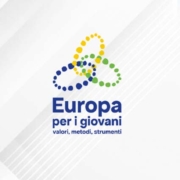GoodFood – Sustainability in Catering Schools
Agreement Number: 2024-1-DE02-KA220-VET-000248007
Program and Call
KA220 VET – Cooperation partnership in vocational education and training (VET)
Call 2024, round 1
The project: objectives and results
Food is one of the central issues in the climate change agenda. It has become increasingly evident that for production and distribution to evolve in a sustainable direction, food choices must also become more conscious. Markets are also beginning to change: consumers in the food industry are becoming more sensitive to the ethical and environmental implications of their behaviors, and food service companies need professionals ready to respond to these needs. It is critical that future industry professionals are fully aware of the importance of their choices and that they acquire sustainable habits and bring them into the workplace.
For this reason, GoodFood aims to create resources and educational materials that help hospitality schools in the sustainable training of future chefs. The goal is to help students develop sustainable habits that they can apply not only in school, but also in their future workplaces, through building specific knowledge and skills, as well as implementing real sustainability action. GoodFood aims to help students become active members of society, contributing to the equitable and sustainable development of their communities.
The partnership includes 4 members of the international sustainability network Global Action Plan International (already part of the Erasmus+ Foodtalks project dedicated to canteen sustainability), 3 hospitality schools from Spain, the Netherlands and Germany, and an Italian foundation that is very active in the field of food sustainability that will also help reach out to some Italian hospitality schools.
Project outcomes include:
– a methodological framework applicable in any European hospitality and catering school;
– a framework of actions dedicated to hospitality schools, replicable in any European school;
– an online platform with training content on health, environment, social justice and economy (manuals, questionnaires and other resources);
– online tools based on the train-the-trainer method, focusing on empowerment, behavioral change, and conscious choices in terms of environmental and social impacts;
– case studies related to hospitality schools in each partner country that can serve as inspiration for other schools.
Target groups:
Direct target:
– Students
Through the project, they will learn how to integrate sustainable habits into their activities at school, in extracurricular projects and in the future workplace.
– Teachers
GoodFood will support them in enriching their curriculum through the exploration of topics such as empowerment, behavioral change and conscious choice, with a critical approach aimed at addressing food issues holistically.
– School organization
The project will also assist leaders and staff in developing strategies and perspectives based on an equitable and sustainable food system that can overcome existing barriers and support students’ educational experience.
– Companies in the food service industry (not only restaurants, but also hotels), directly affected as hosts of trainees from hotel schools and future jobs for female students. It will be here that students will put into practice the sustainable knowledge gained in school.
Indirect target:
– Local stakeholders active in terms of sustainable development
They will become the hotel schools’ natural partners through concrete actions, specific projects and targeted partnerships.
– Food suppliers of the school system (local producers and distributors)
They will be invited to participate directly in the school’s sustainable path.
– Families
Students, teachers and managers will be their reference points for sustainable food habits.
Project phases:
Programme development (methodology, content and platform)
- Stakeholders engagement
- Design and development of contents
- Design and development of the online platform
- LTTA Transnational meeting
Implementation and evaluation
- Contents’ testing and workshop
- Implementation of the materials at national level in the 4 countries
- Evaluation
Project leader:
agado Gesellschaft für nachhaltige Entwicklung UG (Germany)
Partnership:
- Stichting Global Action Plan Nederland (Netherlands)
- InEuropa SRL (Italy)
- ASOCIACION PLAN DE ACCION GLOBAL PARA LA TIERRA GAP ESPANA (Spain)
- Berufsschulzentrum Ansbach-Triesdorf (Germany)
- Fondazione Castello di Padernello (Italy)
- IES ESCUELA DE HOSTELERIA DE LEIOA BHI (Spain)
- Stichting Regionaal Onderwijs Centrum Noord-Oost Brabant (Netherlands)
Duration
24 months (1st December 2024-30th November 2026)
Budget
400,000 €








